Top 10 Tips for Photographing Your First Wedding
Someone asked me the other day if I had any advice for photographing their very first wedding. When you’ve been shooting weddings for 12+ years, a lot of things become second nature, but when you’re just starting, those same things might catch you by surprise.
So I sat down and thought it through: what are the things I naturally do on a wedding day that a first-timer might not think of?
Here are my top 10 tips:
1. Check to make sure you’ve got plenty of room on the card in your camera before every major photo-worthy moment.
Many times we’ve been shooting a lot before the ceremony, so I check to make sure I’m not going to run out of space when the bride is walking down the aisle. I check again right before the first kiss/recessional. And again before the first dance…and the exit…and – you get the idea. Always be aware of when you’ll need to swap out a card so that you’re not caught by surprise at a pivotal moment.
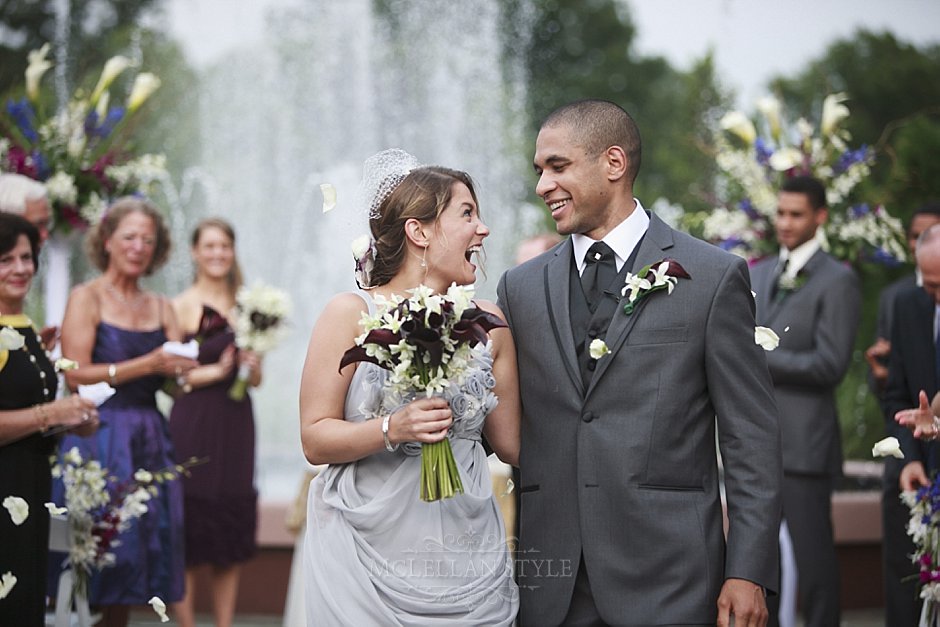
2. Check your battery life.
Very similar to #1, you want to make sure your camera isn’t going to die when you’re supposed to be photographing a once-in-a-lifetime moment.
3. Have backups for all essential gear.
Things do unexplainably break. It happens all the time. Don’t let that happen to you and not have a way to jump right back into the game without missing a beat.
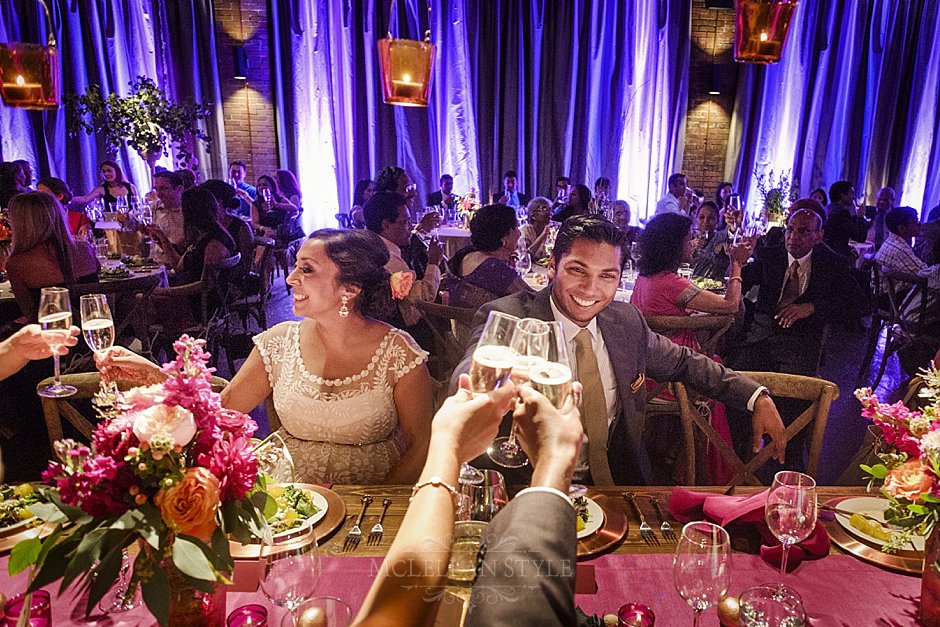
4. Be prepared for low lighting situations.
Wedding receptions are chronically dimly lit events. The human eye thinks candlelight looks dreamy, but your camera struggles to make anything out without the proper setup. I can’t tell you how many times I’ve seen people trying to photograph dark reception spaces with no flash and lenses that only go as low as 2.8-4.5. Think about the look you want and plan accordingly. If you want to use only natural light, look for lenses that have at least a 1.8 aperture, the lower the better. Or get a flash – make that 2 flashes, because you’re going to have backup gear just in case, right? ;) Also, test out how high your camera’s ISO can go before image quality is compromised.
(Bonus Lighting Tip: Pay attention when you or your subject are going into dramatically different lighting scenarios. Inside to outside, the difference between the front of the church and the aisle — you’ll need to be prepared to change your settings quickly or you might miss the shot.)
5. Talk with your bride ahead of time to make sure you know what and who are important to her.
For more details on this, check out our post 12 Questions to Take Your Wedding Photography Preplanning to the Next Level.
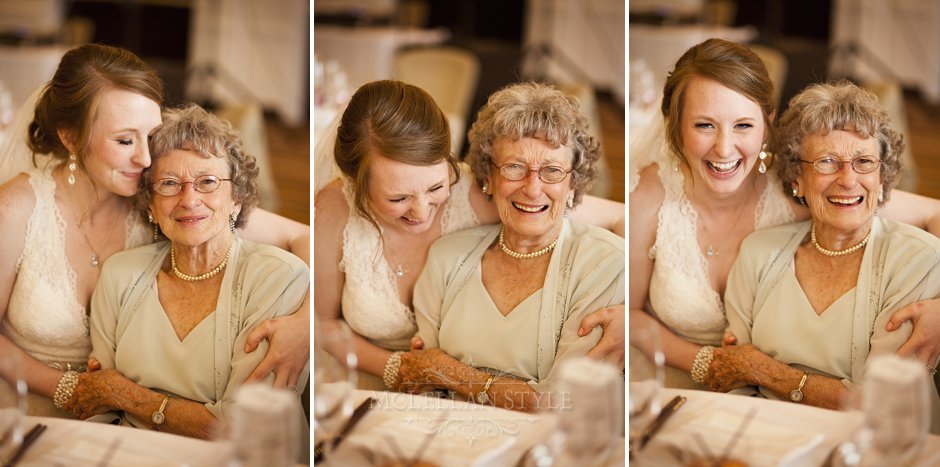
6. Allow for more time than you think you’ll need.
Look, weddings run late more often than they don’t. It’s just the nature of the beast, so plan for it. I let our brides know that we’re building in a time buffer. If everything runs smoothly, she’ll have extra time to relax. If things run behind though, this way she won’t have to stress. Pretty much everyone is good with that.
7. Make a detailed schedule.
Take the timeline for the wedding day and all the notes you collected from your preplanning session and write it all down. That bears repeating: WRITE IT ALL DOWN. The grandmother’s jewelry she wants a photo of, the names of all key players, what she’s looking forward to the most… Don’t assume you’ll remember anything. I still write down the entire family formals list, even though I all but know it like the back of my hand by now. Why? Because things can get hairy on a wedding day and in a crunch, when there’s a lot going on and people going in every which direction, I don’t want to rely on my memory when it comes to something that’s important to my couple.
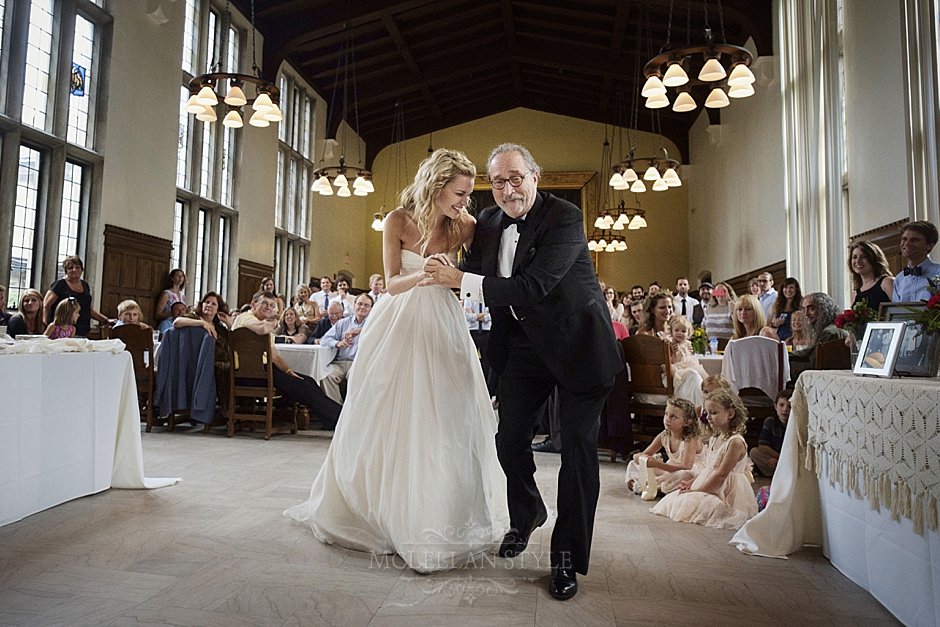
8. Scout your locations ahead of time.
Know where you’ll be shooting and what’s available to you before the day of. If possible, view the location at the time of day you’ll be shooting so that you can have an idea of how the sun will be. If that’s not possible, at least try to gauge it so that you don’t choose a nice shady spot for family formals, only to find out it’s in blinding sun when you need it on the wedding day. Apps like Sun Seeker are a great help for this.
Scouting ahead of time also gives you the opportunity to plan your imagery without the pressures of the wedding day bearing down on you. Walk around and envision what you’d like to create in this space.
9. Backup your files!
This is so, so important. When you get home from the wedding, back up your files to 2 locations – preferably that are very far away from each other. That way if fire wipes out one, or someone breaks into your house and steals it, you still have another copy. Paranoid? Yes. Because you need to be when it’s someone’s wedding.
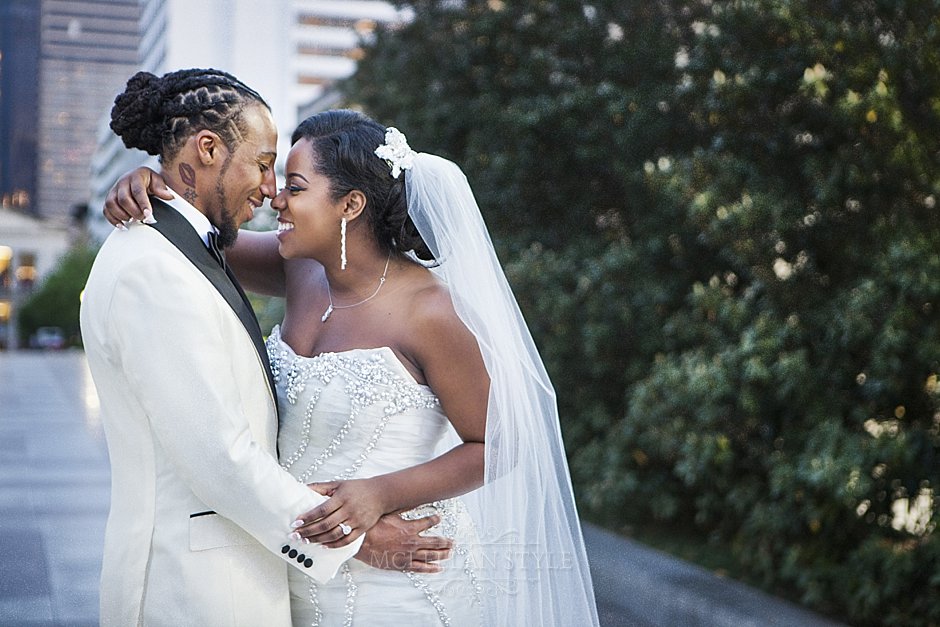
10. Try to relax and have fun with it.
Weddings can get stressful very quickly and photographing them is not for everyone, but when you’re under pressure on the day, remember that you’re there to create an enjoyable experience for your bride and groom and their people. Also, what you’re getting to do is not only important work, it’s also pretty cool work. So if the stress gets to you, take a deep breath and don’t let your clients know it. Try to get back into a peaceful mindset as soon as possible. Have fun and get excited about taking pretty photos and being around happy people.
I hope you’ve found this post helpful and you’re feeling more prepared than ever to knock your first wedding out of the park. With a little preparation, you’re going to do great! :)
— Mel
